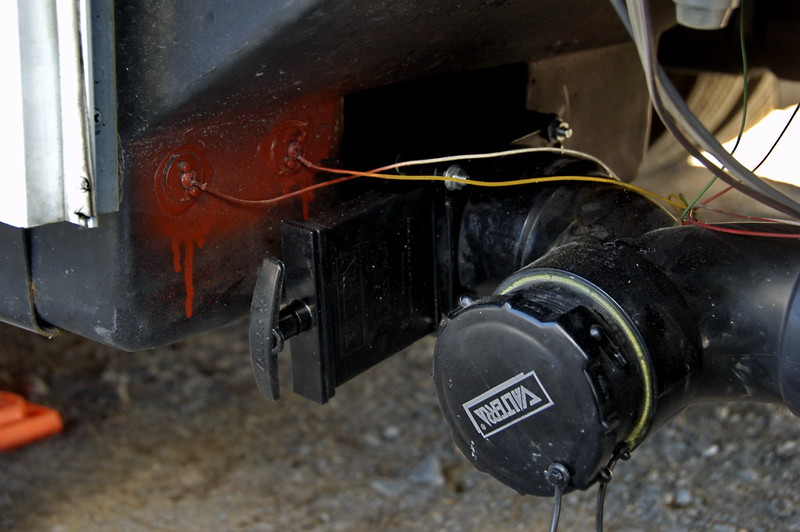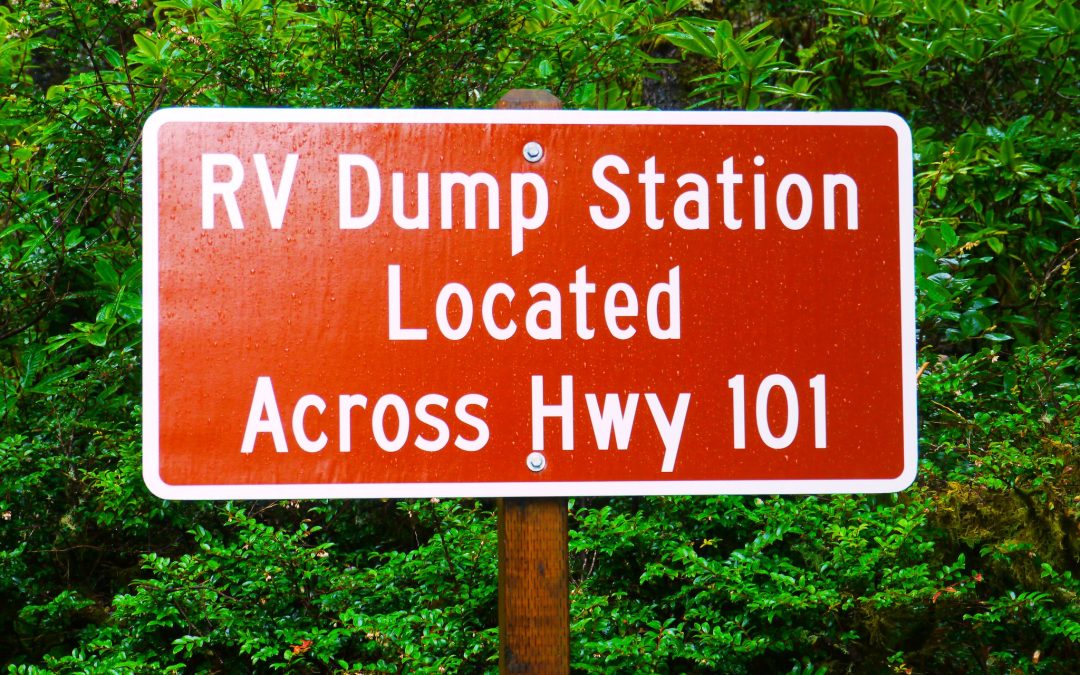RVing is a wonderful way to explore the great outdoors and travel the country. However, managing waste can be a challenging aspect of the RV lifestyle. Proper RV waste disposal and management are crucial to keeping your travels clean and enjoyable. This guide will cover everything you need to know about managing your RV waste and keeping your travels clean.
Understanding RV Waste
Before you start managing your RV waste, it’s essential to understand what it is and how it works. In this section, we’ll cover the different types of waste generated by RVs, how it’s stored, and the potential hazards associated with it.
Types of RV waste
RVs generate different types of waste, including black water, grey water, and solid waste. Black water is the wastewater from the RV toilet, while grey water is the wastewater from the shower, sinks, and other appliances. Solid waste refers to trash, food scraps, and other non-liquid waste generated by RVers.
RV holding tanks
RV holding tanks are designed to store black water, grey water, and solid waste. These tanks come in different sizes, ranging from 10 to 40 gallons, depending on the RV’s size and model. Proper maintenance and emptying of the holding tanks are essential to prevent overflow and potential health hazards.
Risks associated with improper disposal
Improper disposal of RV waste can cause environmental hazards, such as water pollution and soil contamination. It can also lead to health concerns for humans and wildlife, such as bacterial infections and disease transmission.

Image by:Dave Bezaire via flickr
Best Practices for RV Waste Disposal
Disposing of RV waste requires careful consideration and planning. This section will cover the best practices for safely and responsibly disposing of your RV’s waste.
Black water disposal
Black water is the most hazardous type of RV waste and requires special care and attention when disposing of it. The best way to dispose of black water is by using a designated septic system or dumping station. Some RV parks and campgrounds offer these facilities on-site, while others may require RVers to travel off-site to dispose of their waste properly.
Grey water disposal
Grey water can be disposed of in a variety of ways, depending on the regulations and available options in your area. Some RVers may choose to use grey water for irrigation or other purposes, while others may need to dispose of it in a designated dumping station or septic system.
Solid waste disposal
Proper disposal of solid waste is essential to prevent littering and environmental damage. RVers should dispose of solid waste in designated trash receptacles and follow the regulations and guidelines set by the campground or park.
Tips for reducing waste
RVers can reduce their waste output by adopting simple practices such as conserving water, composting, and recycling. By reducing their waste, RVers can minimize their environmental impact and save money on waste disposal fees.
RV Waste Management Systems
To manage your RV’s waste properly, you’ll need to have a robust waste management system in place. This section will cover the different systems available and how to choose the best one for your RV.
Types of waste management systems
There are several types of waste management systems available for RVers, including portable, built-in, and composting toilets. Portable systems are ideal for short-term trips or smaller RVs, while built-in systems are more permanent and suitable for larger RVs.
Factors to consider when choosing a system
When choosing a waste management system for your RV, several factors need to be considered, including size, capacity, and the type of waste generated. It’s also essential to consider the ease of installation, maintenance requirements, and cost.
Installation and maintenance tips
Proper installation and maintenance of your waste management system are essential to ensure its proper functioning and longevity. This section will cover some tips for installing and maintaining your waste management system.
Installation tips
When installing your waste management system, it’s crucial to follow the manufacturer’s instructions carefully. Make sure to choose a location that is easily accessible for emptying and maintenance. It’s also important to ensure that all connections are secure and that the system is properly sealed to prevent leaks.
Maintenance tips
Regular maintenance of your waste management system is essential to ensure its proper functioning and prevent issues such as leaks and odors. Some maintenance tasks you should perform include:
- Regularly emptying your holding tanks
- Flushing your tanks with fresh water after emptying
- Cleaning your tanks and hoses with specialized products
- Inspecting your tanks and hoses for leaks and cracks
- Replacing damaged components as needed
Cleaning and Maintenance
Proper cleaning and maintenance are essential for keeping your RV waste management system in good condition. In this section, we’ll cover the steps you need to take to ensure your system works correctly and safely.
Cleaning tips for waste tanks and hoses
Regular cleaning of your waste tanks and hoses can help prevent odors and keep your waste management system functioning properly. Use specialized cleaning products designed for RV holding tanks and follow the manufacturer’s instructions carefully. Avoid using household cleaners or bleach, as they can damage the tank and hoses.
Regular maintenance tasks
Regular maintenance tasks such as leak checks and inspections are essential to prevent issues such as leaks and overflows. Inspect your waste management system regularly for signs of wear and tear, and replace damaged components as needed.
Troubleshooting common issues
Even with proper maintenance, issues with your waste management system may arise. This section will cover some common issues and their possible solutions.
- Foul odors: These can be caused by a variety of factors, such as clogged vents or damaged components. Try flushing your tanks with fresh water and using specialized odor-control products.
- Leaks: Leaks can be caused by damaged components or improper installation. Inspect your tanks and hoses regularly for signs of leaks, and replace damaged components as needed.
- Full tanks: If your holding tanks are full, you’ll need to empty them at a designated dumping station or septic system. Avoid overfilling your tanks to prevent overflow and potential health hazards.
RV Waste Disposal FAQs
- Q1: What types of waste are generated by RVs?
A1: RVs generate black water, grey water, and solid waste. - Q2: What are RV holding tanks used for?
A2: RV holding tanks are used to store black water, grey water, and solid waste generated by RVs. - Q3: What are the risks associated with improper disposal of RV waste?
A3: Improper disposal of RV waste can cause environmental hazards, such as water pollution and soil contamination, as well as health concerns for humans and wildlife, such as bacterial infections and disease transmission. - Q4: What are some best practices for disposing of RV waste?
A4: The best practices for disposing of RV waste include using a designated septic system or dumping station for black water, properly disposing of solid waste in designated trash receptacles, and following local regulations and guidelines for greywater disposal. - Q5: How often should RV waste tanks be cleaned?
A5: It is recommended to clean RV waste tanks after every use and perform a more thorough cleaning every three to four months.
Resources
- RV Travel – RV Waste Management Guide: https://www.rvtravel.com/rv-waste-management-guide/ Description: This comprehensive guide from RV Travel covers topics such as understanding RV waste systems, proper waste disposal techniques, and maintaining your RV’s holding tanks.
- Good Sam – A Comprehensive Guide to RV Holding Tanks: https://www.goodsam.com/camping/articles/a-comprehensive-guide-to-rv-holding-tanks/ Description: Good Sam provides an in-depth guide on RV holding tanks, including types of tanks, capacity, how to maintain them, and how to prevent common issues.
- The Dyrt – How to Dispose of RV Waste Safely and Responsibly: https://thedyrt.com/magazine/lifestyle/how-to-dispose-of-rv-waste/ Description: The Dyrt offers a detailed article on disposing of RV waste safely and responsibly, including tips for black water, grey water, and solid waste disposal.
- RVshare – A Beginner’s Guide to RV Waste Management: https://rvshare.com/blog/beginners-guide-to-rv-waste-management/ Description: RVshare’s beginner’s guide to RV waste management covers everything from types of waste to proper disposal practices, including advice on choosing the right waste management system for your RV.
- Campanda – The Ultimate Guide to RV Holding Tanks: https://www.campanda.com/magazine/ultimate-guide-rv-holding-tanks/ Description: Campanda’s ultimate guide to RV holding tanks provides detailed information about the different types of holding tanks, their functions, and how to maintain them for optimal performance.
Conclusion
This article covered everything you need to know about managing RV waste disposal and management. By following these best practices, you can keep your RV clean, safe, and enjoyable for your travels. Remember to always dispose of your waste properly and take care of your waste management system to prevent any issues. Happy RVing!

